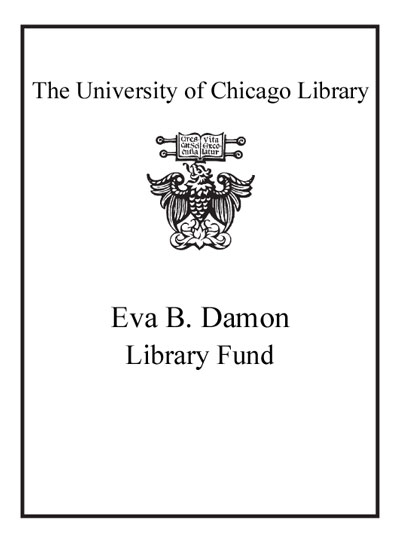Review by Choice Review
In this biography of revolutionary martyr Nathan Hale, the author tries to demythologize the legend and reveal the man behind the myth. Investigative journalist Phelps offers tantalizing insights into Hale's life, from his upbringing in Connecticut to his capture and execution by the British on charges of espionage. But the book's interesting anecdotes are not contextualized with enough information about life in Revolutionary America to allow Hale to become a living, breathing person. The occasionally compelling narrative attempts to re-create conversation, but on some occasions relies on secondary source materials written a century after Hale's death. Although the author consulted a number of sources, many important monographs about life in revolutionary America that might have added context and color to this work do not appear in the notes or bibliography. The result is an unsatisfying book that does little to expand historians' knowledge of Hale and falls short in its efforts to provide a compelling narrative for readers with a general interest in the American Revolution. Summing Up: Optional. Public libraries/general collections. J. C. Arndt James Madison University
Copyright American Library Association, used with permission.
Review by Booklist Review
Nathan Hale is a secular saint of American patriotism. Facing a British gallows for spying during the Revolutionary War, he supposedly uttered these immortal words: I only regret that I have but one life to give for my country. Phelps has written an informative, interesting biography of Hale that effectively reveals the flesh-and-blood human behind the iconic image. Clearly an admirer of Hale, he has written nothing that detracts from Hale's reputation; instead, he has provided a nuanced portrait of a deeply religious, idealistic young man whose short life was dedicated to various forms of public service. Hale was raised in rural Connecticut, attended Yale at the age of 14, and graduated with honors. Upon graduation, he worked as a schoolteacher, and after Lexington and Concord, joined a Connecticut militia. He seemed to approach service to the Patriot cause as a passion, not merely a duty. Phelps, using Hale's own correspondence, clears up some of the murky details surrounding Hale's spying, arrest, and execution. This is a well-done, balanced account of a short but interesting life.--Freeman, Jay Copyright 2008 Booklist
From Booklist, Copyright (c) American Library Association. Used with permission.
Review by Library Journal Review
This is the first full-length biography of Hale in several decades. Hanged by the British as a spy, Hale is most famous for the phrase attributed to him, "I only regret that I have but one life to give my country." Phelps (If Looks Could Kill), best known as a true crime author, brings his reporting skills to this history. He does well with the story of Hale's short life and disturbing death after being caught behind enemy lines seeking information on British troop movements. Relying as much as possible on primary sources, Phelps writes of Hale's years at Yale, which he attended in his early teens. He was an excellent athlete, handsome, charming, with a large number of friends. After graduating in 1773, he began life as a teacher, but in those pivotal times, he left teaching for the Connecticut militia. Some of the most powerful parts of this biography are those in the words of Hale's brother, Enoch, who was sent by the family to find out how Nathan died and to bring back his body. This book would serve well as a staple for high school American history students, as well as college readers and all history buffs. Highly recommended for school, undergraduate, and public libraries. [Warner Bros. has optioned the film rights to this book.--Ed.]--Suzanne Lay, Perry H.S., Perry, GA (c) Copyright 2010. Library Journals LLC, a wholly owned subsidiary of Media Source, Inc. No redistribution permitted.
(c) Copyright Library Journals LLC, a wholly owned subsidiary of Media Source, Inc. No redistribution permitted.
Review by Kirkus Book Review
A new look at the Connecticut preacher's son who became an icon of patriotic sacrifice. True-crime specialist Phelps (I'll Be Watching You, 2008, etc.) delves deeply into the comportment and character of Nathan Hale (1755-76). Covering his studies at Yale and his fulfilling early career as a schoolmaster in the bustling port town of New London, the author shows an amiable, intelligent, athletic and well-educated young gentleman. Hale's dedication to his Christian faith was soon to be matched by his passion for the cause of his "injured, bleeding country" in the throes of rebellion against its colonial masters. But he also had moments of boredom and self-questioning, relieved by any number of romantic dalliances or an occasional bout of serious boozing with former Yale classmates and other friends. He was swept into military service first in the militia, then became an officer in George Washington's army, with which he participated in the siege of Boston in 1775. After Washington's forces withdrew from New York City and the English occupied it, Hale volunteered for a mission behind enemy lines on Long Island to gather information on the British high command's resources and possible strategies. The rest is history, and Phelps makes no real inroads on the major questions: Why was Hale so easily tricked into revealing his mission to Robert Rogers, a well-known British military man? Where exactly in New York was he hung from a tree after uttering those famous sentiments about having "only one life" to give? (Sentiments that were probably paraphrased for posterity.) Where was his body buried in an unmarked grave? Could Hale have actually started the fire that devastated lower New York? All mysteries still. Phelps provides useful perspective on 18th-century mores that made spies like Hale initially reviled by both sides, but his narrative could use more depth. Copyright ©Kirkus Reviews, used with permission.
Copyright (c) Kirkus Reviews, used with permission.
Review by Choice Review
Review by Booklist Review
Review by Library Journal Review
Review by Kirkus Book Review

